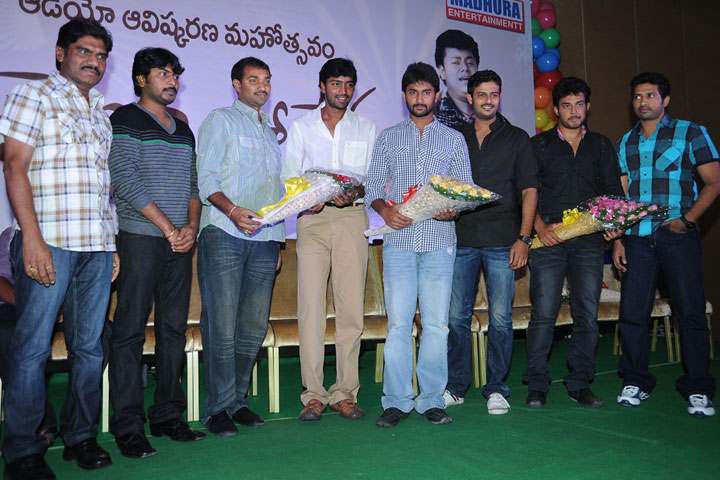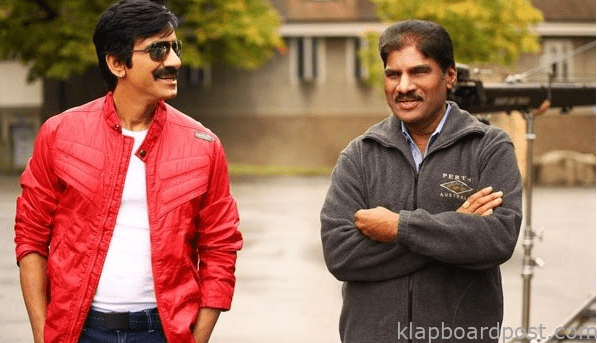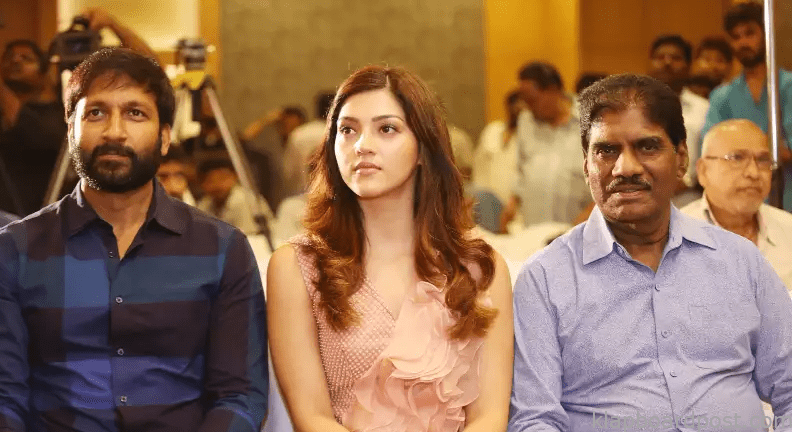Y Sunita Chowdhary
Producer K K Radha Mohan had lived abroad for 35 years and had been in the top of his studies as well as his business. He always believes in fair play and systematic functioning of life which is why he received a jolt in the film business. Despite many flops, he continues to produce films with passion and hope that his next movie will be a sure shot success. In a conversation with Klapboardpost.com, Radha Mohan says film making isn’t passion, it is madness because people despite knowing the success rate invest and hang on to do more and more projects. He wrapped up Orey Bujjiga which had a super positive buzz and was about to release it when the pandemic hit the industry.
A brave man, he doesn’t mince words, calls spade a spade and states even if he makes losses, he is able to feed technicians, junior artistes and their families. He feels sorry for first time producers who are sold by technicians who don’t give a realistic picture of the budgets. Not all are mentally prepared like him. The producer laughs as he says, “I know people crack jokes on me that I make flop films, go back to Uganda..make money and come back to do one more. Poguttukunna parvaledhu is the attitude, pogottukundham ani raamu ikkadiki.”
An all-rounder

I was born in Jangareddygudem in West Godavari. I remember my father who was a village president going to the only theatre in the village to watch cinema after dinner. A chair was always reserved for him. My siblings were all interested in cinema and there wasn’t much of entertainment then. The women in the house, during weekends, would never miss the abridged audio version of the film on radio, Sankshipta Sabdha Chitram. Discussions would follow after that. I acted in dramas, participated in extracurricular activities and was always the topper in studies. After finishing PUC in Andhra Loyola College in Vijayawada, I studied engineering in REC, Warangal. It was there that all my talent came to the fore, be it studies, sports or arts. I learnt many languages and I dabbled in everything, so much that during the farewell function in college, a friend wrote about me in the souvenir that I was Jack of all games and master of none.
Decision to return to India
I worked for the Indian Post and Telecommunications Department and worked in various places in India and abroad. During the emergency, I went to Italy and worked in Nigeria too. I was in Tanzania and Kenya, Uganda and never knew summer for 25 years. I was working for Hyundai Motors in Uganda. If the temperature is around 32 degrees centigrade, people would complain it is too hot. I would come to India during holidays i.e between October and February.
I decided to return to India when I was holding a top position and that was when liberalisation set in. People in India never say no. Go to them with some business proposal, they say yes immediately, get an agreement ready and never execute the work. They take money and never return, to be precise, they grab work without even knowing if they can do it or not, take advances and never look at our faces again. I was unlucky to have bad experiences. Most people have a low opinion of NRIs and that was mostly in 1997. Things have changed now. Also the impression is Indians never deliver on time.
When I was looking for a dealership in India, things were bad. The working style is different here and I didn’t quite adjust. If I am a cheat and others are too, it is great to survive but if we differ things can get tough. In 1998 I decided to go back. My boss said he will keep my job till six months and I overstayed here. I constructed a house and a few days before the house warming ceremony, my mother passed away. I went back to Uganda and stayed there for 20 years. There I shifted from the motor industry to the manufacturing industry. We arranged many cultural programmes, wrote skits, had artists from India come over to perform on India Day.
First steps in cinema

In 2007, Priyadarshini Ram and Amarnath visited Kenya, they met me as they knew I had interest in movies. I became one of the shareholders in Toss. It was the first full length digital movie at that time in the Telugu industry. Sampath Nandi worked as a dialogue writer for this as he was associated with Ram for his first film Manodu. At that time, it was a learning experience for me, I would spend some time around six months here and know what the 24 crafts was all about; With investment of time and money I went ahead with the project. It was not a profitable venture.
I then came up with my banner and made Adhineta starring Jagapati Babu. We released the film in three months, it was a cost failure. We wanted to release it before the elections as the plot had similarities to a political party. It was the same time PRP was established, elections were held in April and Chiranjeevi’s fans supported the movie. Then Sampat Nandi came up with Yemaindi Ee Vela. Orange was released a little earlier than this film and most of the theatres. We still had house full collections. My next was Fifty Percent Love, I acquired the rights and remade it in Telugu. The hero had a negative role and none agreed to work in it, so we dubbed it. Pyar Mein Padipoyane too didn’t work.
The Bengal Tiger producer

Sampat Nandi meanwhile had narrated a story to Ravi Teja and I produced Bengal Tiger, it got me a lot of fame and even today people identify me as a Bengal Tiger producer. From a small film Yemaindi Ee Vela to Bengal Tiger, it was quite a journey. This time we went for a big casting. After Kick 2, Ravi Teja agreed to do our film and everyone commented that I am a lucky man to which I replied I have never been successful in this film business. I closed part of the film business before Kick 2 release. Ravi Teja’s friends felt I should have waited for some more time as Kick 2 was carrying a positive buzz. I didn’t sell all the areas, some more were waiting to be sealed and I told them if all goes well, I can make money on those areas. I could have lost six crores had I kept the film with me. As I said I lost money on the remaining areas.
Ravi Teja said if Kick 2 becomes a hit, I would have to hike his pay but if it flops, he will reduce his remuneration. He kept his word, he reduced it and was very cooperative. Throughout the film, he was helping me by telling me to reduce cost. As we know, if your previous film becomes a disaster, it gets tough to do business for the ongoing project. The budget was hiked and there were no profits.
On Pantham and Adhinetha

I produced a comedy film and its subsequent release during demonitisation didn’t work out. Pantham followed, it was a powerful story and due to rains, a few distributors couldn’t break even. I helped them by returning part of the cash and made the film GST free. Others were safe. Gopichand’s films didn’t work out earlier and at that time I produced it, and Pantham got a kind of standard in his career. Adhineta was a satisfying film, it must have been telecast a zillion times on the small tube.
I lost mainly on Pyaar Mein Padipoyane, Meelo Yevaru Koteeswarudu, Toss and Adhineta. Subject wise they are good but they all are cost failures. When you start off the agreed budget is something and what happens eventually is something else. When desires, needs rise in the process, do I stop the film and lose 15 crores or shall I complete the film and release it? If we fight with technicians and artists, the word spreads and it affects the business. You should be diplomatic, finish it and get out of it for loss or profit. Lot of films are lying on the shelves half-done due to ego issues.
Similarities in business, film making
Directors just want to convince producers that they’ll finish within a particular budget. I know for sure that will not happen. If the budget gets hiked by ten percent then it is tolerable but if it escalates further, the producer becomes helpless. I saw the same attitude of people in my previous business. The situation is being repeated here; the technician wants to somehow start the project by hook or crook. You will hardly find anyone who will wrap up film in the estimated budget. Hence we always have heroes, producers and directors having arguments over this.
At the end of the day, all take their money and leave. If the film flops, it is the producer who suffers, no one comes to his rescue. In olden days, producer, distributor and the exhibitor would share profit and loss. For big cinema, the distributors show enthusiasm and buy it. They lose crores in big cinema but they don’t want to buy medium or small budget cinema. They will not take a risk. They want to release the film without taking risk. They want to make big money from big films like Bahubali but that is a rare moment.













